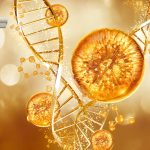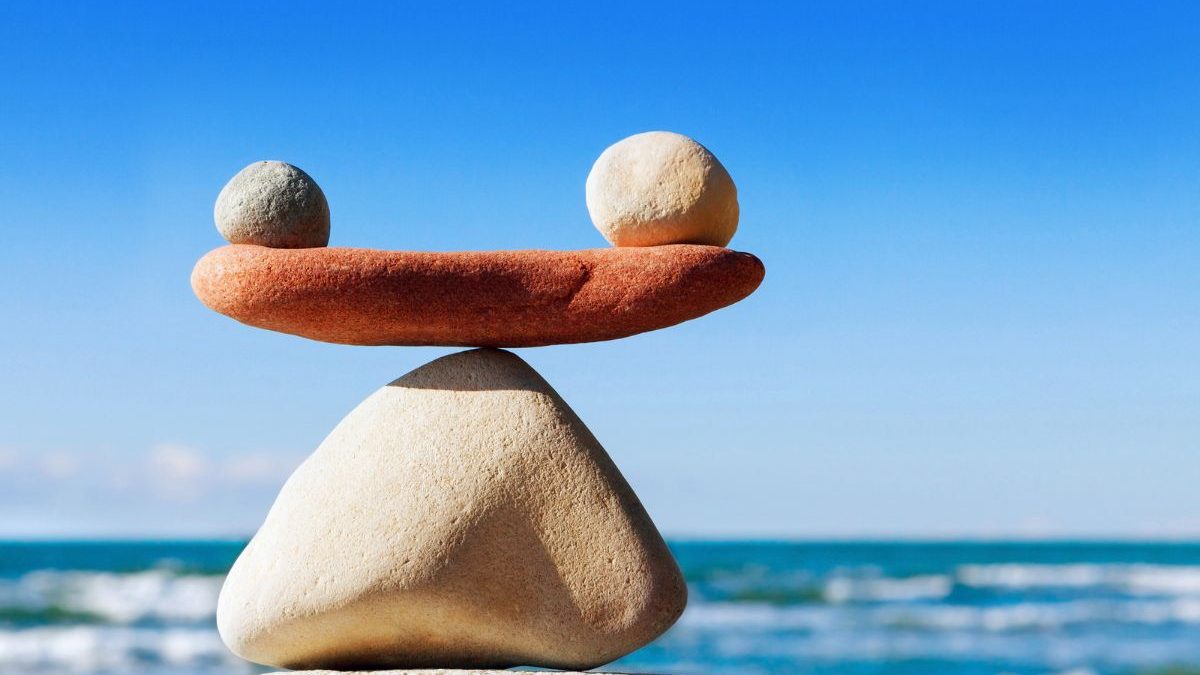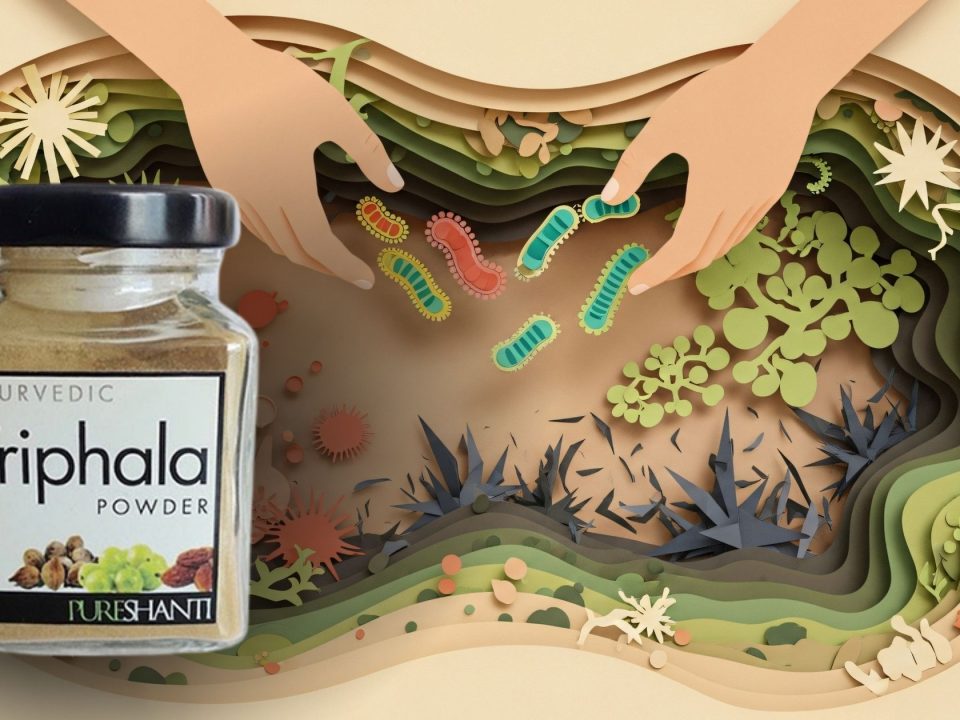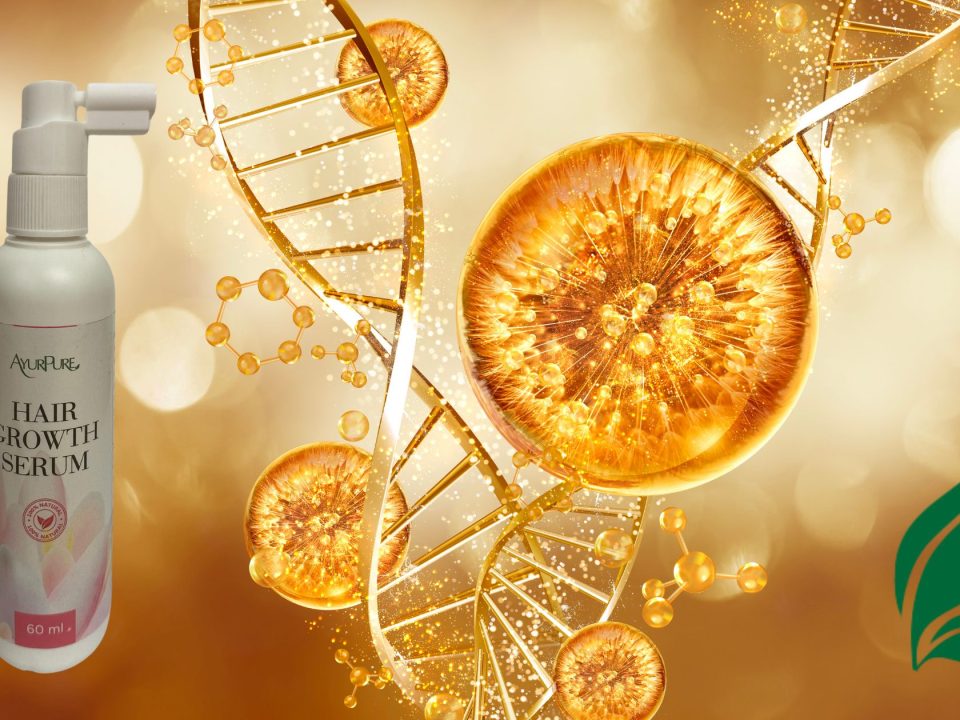
Ayurvedic Remedies for the Cold and Flu Season
May 16, 2023
Sometimes, we could really use a little extra help – AyurPure Hair Growth Serum Spray
November 22, 2024
UNDERSTANDING CHOLESTEROL
WHAT IS CHOLESTEROL?
Cholesterol is a waxy substance made by your liver and intestines (you get some from food as well) that helps make your cell membranes and hormones. It also helps your body digest food.
Thus cholesterol is a lipid found in your blood that comes from two sources, namely
– your body, and
– food.
Your body makes the required cholesterol it needs, but it can also be found in food from animal sources.
Your body uses cholesterol to transfer and store energy for later use. But too much can raise your risk of heart disease, especially if you already have high levels of ‘bad’ (LDL) cholesterol.
Excess cholesterol can form plaque between layers of artery walls, making it harder for your heart to circulate blood, increasing your risk of heart disease and other cardiovascular diseases.
GOOD AND BAD TYPES OF CHOLESTEROL
There are several different types of cholesterol.
High density lipoprotein (HDL) is often called ‘good’ cholesterol. It helps carry cholesterol away from the arteries and back to the liver, where it is processed.
Low density lipoprotein (LDL) is known as ‘bad’ cholesterol. Too much can leave fatty deposits (plaque) on the lining of arteries, causing blockages and leading to cardiovascular disease.
Your body needs a small amount of cholesterol. But many people have too much, especially the ‘bad’ kind, or LDL cholesterol. That can happen if you eat too much saturated fat, found mainly in foods from animals. If your LDL level is too high, plaque can build up in your heart’s arteries and lead to heart disease. The ‘good’ cholesterol, HDL, helps clear LDL from your blood. Lowering your LDL can significantly decrease your risk of developing heart disease or a stroke.
You may not see any signs, or feel any symptoms of having high cholesterol, so it is therefore important to have your cholesterol checked regularly. Your doctor will likely test your triglycerides and cholesterol together. They will take a sample of your blood, and they may ask you to avoid eating certain foods or drinks or to stop eating for a half-day (12 hours of fasting) or so beforehand, to ensure that the results are more accurate.
Your blood sample will then be sent to a pathology laboratory for testing. The tests will reveal the levels of ‘good’ (HDL) cholesterol, ‘bad’ (LDL) cholesterol, and triglycerides in your blood. Your doctor will receive your ‘total blood cholesterol’ results from the laboratory that has charted all three levels to come up with your final result. A high number can raise your risk of heart disease. Your age, gender, family’s medical history, whether you smoke, drink alcohol, suffer from high blood pressure, have any other medical conditions, or take any medication, supplements or recreational drugs may affect your reading. Triglycerides are increased with obesity, a sedentary lifestyle, poor diet, and alcohol. So it is recommended to talk to your doctor about it.
NORMAL CHOLESTEROL LEVELS
Cholesterol levels vary from person to person, but in general the lower the LDL and non-HDL, the better, and also the higher the HDL, the better. Your blood cholesterol is measured in mmol/L, which stands for millimoles per litre.
You should aim to have:
- total cholesterol 4mmol/L or less for those at high risk
- non HDL-cholesterol of 3mmol/L or less for those at high risk
- LDL-cholesterol of 2mmol/L or less for those at high risk
CAUSES OF HIGH CHOLESTEROL
General
There is no one single cause for high cholesterol. Many different factors can contribute to high cholesterol such as:
- eating a diet that is high in saturated fats
- smoking
- lack of physical activity
- high alcohol intake
- kidney or liver disease, or
- having an inherited condition known as hypercholesterolaemia
Let’s look at some of these:
Stress
Chronic stress causes a number of health problems, including high cholesterol. Research shows that it raises your risk of high LDL (‘bad’) cholesterol and lowers levels of HDL (‘good’) cholesterol. That’s because stress hormones, such as cortisol and adrenaline, trigger changes in the body that may lead to higher blood sugar and inflammation. Over time, this may cause your liver to pump out more cholesterol and blood fats called triglycerides.
Unfiltered Coffee
Your French press, Turkish coffee, or espresso habit may brew up trouble for your cholesterol. These coffees do not use a filter, so oily compounds in the beans called diterpenes seep into your cup. These oils can raise LDL cholesterol. How many cups of unfiltered coffee do you have a day?
Medications
Some drugs may have an unexpected effect on your cholesterol. These include certain birth control pills, retinoids, corticosteroids, antivirals, and anticonvulsants. Some medicines for high blood pressure, such as diuretics and older forms of beta-blockers, can also raise your cholesterol. Talk to your doctor about any medications that you are taking. You may need a different dose or possibly change to another drug altogether.
Thyroid Issues
Your body uses thyroid hormones to help remove the extra cholesterol that it doesn’t need. So, when you have an under active thyroid, or hypothyroidism, your levels of total and LDL cholesterol go up. Talk to your doctor if you have symptoms of hypothyroidism, such as fatigue, dry skin, and muscle weakness and body aches and pains. A blood test can screen for the condition.
Type 2 Diabetes
Type 2 diabetes can cause high blood sugar. When there’s too much sugar circulating in the blood, it may attach to proteins, such as cholesterol molecules. This makes cholesterol more harmful. For example, people with type 2 diabetes tend to have more small, dense LDL particles, which raises the risk of heart disease. They also have lower amounts of protective HDL cholesterol. This cholesterol may not work as well to sweep away the ‘bad’ cholesterol.
Menopause
The sex hormone oestrogen affects your cholesterol levels. When oestrogen falls after menopause, your cholesterol goes up. Research shows that LDL and total cholesterol levels rise around and after your final period. To make matters worse, women gain on average about 3.5 to 4 kilograms (8 to 10 pounds) after menopause. Statistics indicate that they also stop exercising as much as they used to, which can up the risk of high cholesterol.
Sedentary lifestyle
Whether it’s at your desk or on a couch, sitting for hours on end is bad for your health. It’s linked with obesity, heart disease, and high cholesterol. When you sit for too long, an enzyme that turns harmful LDL cholesterol into good HDL cholesterol drops by 95%. To protect your heart, take frequent breaks. Stand up at least every 30 minutes and, if you can, go for a 5-minute walk every hour.
Liver Problems
Your liver makes, processes, and breaks down cholesterol. When your liver doesn’t work properly, it can affect your cholesterol levels. One of the most common conditions is nonalcoholic fatty liver disease (NAFLD), which happens when extra fat is stored in the liver. It affects nearly 1 in 4 adults. The more severe form is known as NASH (nonalcoholic steatohepatitis). This is an advanced form of non-alcoholic fatty liver disease. It causes the liver to swell and scar, leading to liver cirrhosis. This scarring is permanent and irreversible. It damages the liver and interferes with its functioning and can lead to liver failure.
Too Much Alcohol
Along with processing cholesterol, your liver also breaks down alcohol. So, when you drink too much, it can affect your cholesterol. One study found that men who drank heavily (roughly 4½ drinks or more at once) had worse cholesterol levels, compared to those who didn’t. This was also true for those who binged only on occasion, too. Do you need to drink alcohol?
Pregnancy
During pregnancy, your body uses cholesterol to help the foetus grow and develop. That is why your cholesterol levels may rise up to 50% in the second and third trimesters. They can stay elevated for about a month after childbirth. This temporary spike usually does not harm the mother or the baby. But if you already have high cholesterol, your doctor will want to keep track of your levels.
Kidney Problems
Cholesterol affects the way your kidneys work. Research shows that high cholesterol may harm kidney function and raise your risk of kidney disease. On the flip side, kidney problems may increase your cholesterol levels. Research shows that nephrotic syndrome, a type of kidney disorder, increases your LDL and total cholesterol levels. Chronic kidney disease also lowers your HDL levels.
A High Sugar Diet
A diet high in the sweet stuff causes your liver to make more LDL cholesterol and triglycerides, and less HDL cholesterol. One study found that people who got 10% or more of their calories from added sugars were up to 3 times more likely to have low HDL levels, compared to those who had less than half that amount.
LOWERING CHOLESTEROL LEVELS
While your body needs cholesterol to function properly, imbalanced cholesterol can lead to a variety of health problems. High cholesterol is well known to increase the risk of heart disease and stroke.
Making healthy eating choices and increasing exercise are important first steps to improving your cholesterol.
Thus, for some people, cholesterol-lowering medication may also be needed to reduce the risk of heart attack.
Medicines or supplements might include:
– statins (which also curb ‘bad’ cholesterol)
– omega-3 supplements
– niacin (a B vitamin, but don’t take it without talking to your doctor first because of possible side effects), and
– a type of drug called fibrates.




